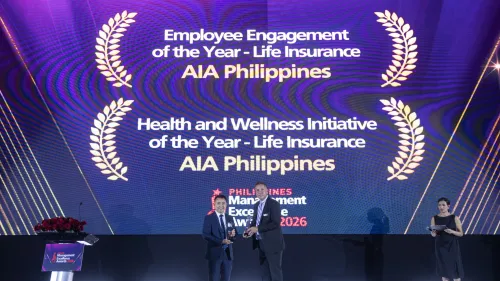Fit For the Post-Pandemic Future: Driving Employee Engagement Through an Intergenerational Lens
By Sunshine FarzanThanks to the COVID-19 pandemic, hybrid work arrangements have become the norm globally for organizations across industries. Locally, a strong majority of Singapore companies (78%) are leaning towards maintaining a hybrid schedule, according to recent data from Milieu Insight. At the same time, employees are far less enthusiastic about going all-in on one work environment, with only 12% prefer working from the office all the time and only 10% wanting to work remotely full-time.
As companies in Singapore future-proof their workplaces, they must consider how they will address damaging trends, like ageism, and bridge generational gaps that have the potential to widen in the face of continued remote and hybrid work. Otherwise, in the quest to virtualize, companies will miss out on attracting, engaging and retaining age-diverse talent.
Intergenerational teams: different priorities and preferences
Hybrid working engages employees across age groups, including baby boomers, Generation X, millennials and Generation Z. As lifespans increase, many workers are deferring retirement and working longer. Baby boomers, being the eldest in the workforce and making up more than 11.7% of Singapore’s population, have been known to appreciate role clarity, autonomy and more structured work environments - and may have a hard time adjusting to workplace flexibility
Millennials grew up with technology and rely on it to perform their jobs better. Armed with smartphones and other gadgets, this generation is plugged in 24/7. They prefer to communicate online in their personal and professional lives. At the same time, they value cooperation and appreciation and seek both challenging and meaningful work.
Zoomers, the latest addition to the workforce, bring their own requirements and goals. This generation witnessed the great recession in 2008, pushing them to prioritize job security, training and upskilling. Unlike their predecessors, Generation Z grew up with phones in hand. However, studies suggest zoomers find more assurance in face-to-face communication and hands-on in-person training.
Building a successful intergenerational team
With the following pillars in place, companies with multigenerational workforces can set the foundation for an effective hybrid framework.
Companies must first embrace digital transformation to maximize virtual working models. While baby boomers are stereotyped for being “tech-resistant,” a report from KPMG found children are increasingly teaching and influencing their parents. This dynamic is accelerating technology adoption across the board. For companies, the key is to provide digital training programs accessible from all devices and across all platforms so that employees—from Gen Z to boomers—can onboard, develop and upskill.
Diversity, equity and inclusion (DEI) is gaining traction in workplaces, with 90% of CEOs globally identifying initiatives in this area as a strategic and personal priority. However, the current momentum may not be strong enough to support multigenerational workforces working remotely. It was reported seven in 10 Singapore-based employers have not introduced DEI policies. Meanwhile, an AARP survey in the US found nearly 80% of older employees have been negatively singled out for their age at work. On the other side of the same coin, according to research published by Harvard Business Review, younger employees may also be passed up for leadership roles or opportunities because of their age.
Against the pressures of the past two years, it may not be surprising that more than nine in 10 (92%) workers in Singapore are experiencing burnout. Amid the stress, each generation has its own pain points. For instance, baby boomers need to consider the risks the virus presents to their own health. Millennials, the new sandwich generation, are more likely to be in the position of simultaneously caring for children and aging parents. Zoomers reported the highest stress levels of all the generations.
Shifting away from an “always-on” culture to one allowing better flexible scheduling and work life balance can benefit workers of all generations.
Looking ahead
Remote work practices are relatively new so hybrid frameworks must remain malleable, particularly when companies are looking to harness the talents of a multigenerational hybrid workforce. For example, in an age of continuous disruption, hybrid employees will need frequent, ongoing training so they can stay current on the most efficient ways to work. For all the differences in a multigenerational workforce, a one-size-fits-all training strategy is insufficient.
Most importantly, companies will need to listen to employees, building a hybrid framework that maximizes productivity, increases engagement and empowers employees—across all ages, cultures and generations.




















 Advertise
Advertise









